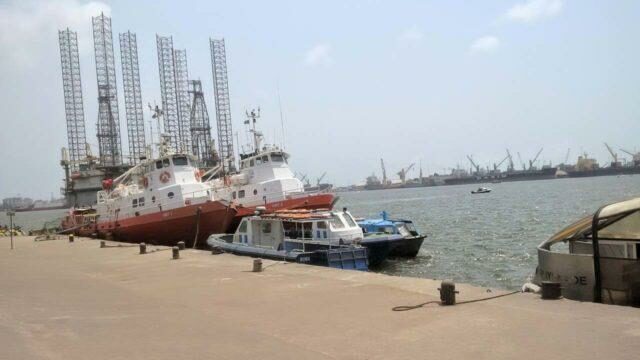The national chairman of the Nigerian Institution of Marine Engineers and Naval Architects (NIMENA), Engr. Dr Eferebo I. Sylvanus, has reiterated the urgent need for Nigeria to deepen local content, strengthen its marine engineering capacity, and build a technically sovereign maritime nation driven by innovation and youth empowerment.
Speaking as a guest on Arise News TV during a live interview yesterday, Engr Sylvanus emphasised that Nigeria’s economic future is inseparable from the strength of its maritime ecosystem.
He described Nigeria as “a fundamentally maritime nation blessed with 853km of coastline, 10,000km of inland waterways, and one of the most active offshore oil and gas theatres in the world,” noting that the sector has the potential to unlock a trillion-naira blue economy if strategically harnessed.
Engr. Dr. Sylvanus highlighted that Nigeria continues to rely heavily on foreign technical services — from classification and vessel inspection to offshore engineering and seafarer certification — leading to billions of naira lost annually.
“Local content is not just a policy. It is a strategic national imperative,” he said.
“Technical sovereignty is the new currency of power, and Nigeria must deliberately build the institutions and engineering capacity to stand on its feet.”
He affirmed NIMENA’s commitment to promoting indigenous shipbuilding, expanding dry-docking capacity, enhancing offshore vessel support systems, and advocating for the creation of an indigenous classification body that will place Nigerian engineers at the center of vessel design, safety assurance, and standards compliance.
In addressing skill gaps and manpower shortages in the sector, the NIMENA Chairman stressed that Nigerian youths possess immense potential, creativity, and resilience.
“Our young marine engineers are Nigeria’s priceless asset. They are not the weak link — they are the engine of Nigeria’s future,” he said.
“What they need is exposure, structured training pathways, and modern R&D infrastructure to translate their creativity into commercially viable solutions.”
He reiterated NIMENA’s ongoing partnerships with universities, maritime academies, shipyards, and private-sector innovators to expand simulation-based training, digital engineering competencies, computer-aided ship design, and hands-on industrial experience.
Engr. Dr Sylvanus called for greater synergy among key maritime agencies — including NIMASA, NIWA, NPA, NCDMB, COREN, and the Standards Organization of Nigeria — noting that fragmented regulatory frameworks limit growth.
“Strong maritime nations are built on strong institutions. NIMENA is deeply committed to harmonizing standards, promoting compliance, and ensuring that the sector speaks with one unified technical voice.”
He added that a modern, coordinated regulatory ecosystem is essential to transform Nigeria into a globally competitive maritime hub.
The Chairman highlighted the importance of research, innovation, and commercialization of engineering solutions. He referenced ongoing PPP-driven initiatives such as the Marine & Offshore Technology Development Centre in Rivers State, expanded R&D programmes, and collaborations that support the development of smart marine solutions, AI-enabled systems, digital twins, and automated vessel technologies.
“Nigeria cannot continue to import solutions for problems Nigerian engineers can solve,” he remarked.
“We must invest in research, innovation, and marine technology startups that will define the future of our blue economy.”
He further advocated for improved sea-time access, updated training curricula, and certification pathways aligned with IMO’s STCW standards, stating that a globally competitive Nigerian seafaring workforce will boost national revenue and global presence.
The Chairman concluded by assuring Nigerians that NIMENA will continue to champion reforms, capacity development, and technical excellence across the maritime value chain.
“If we strengthen our institutions, empower our youth, harmonise regulations, and invest in innovation, Nigeria will not just participate in the maritime economy — we will lead it,” he said.








